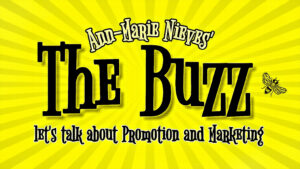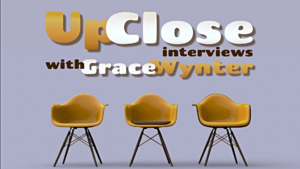Marketing
It’s always a buzz to go into a bookshop in a city you haven’t been in for a while and see copies of your book still there, prominently displayed, months after publication. The perfect occasion, you think, to sign a few and have that attractive Signed Copy sticker on the front! But what if you haven’t organised a book signing in that particular shop? Is it okay to go in and ask to sign them?
In my experience, yes—it is always worthwhile. Booksellers like to have the Signed Copy sticker on the front too, an extra something to attract the customer’s eye and maybe nudge them over the line to purchase. And if you time your impromptu visit well—e.g. when it’s not too busy in the store—it’s been my experience that you can have great chats with booksellers and gain valuable information about how their customers are responding to the book in their particular area, what they themselves think are its strong points, etc.
If you handle it well—not as a hard sell but as an opportunity to make a connection and express your appreciation for the work they do selling your book—then people tend to respond very positively in my experience. It makes the possibility of handselling much more likely, as you and your book will be much more memorable to an individual bookseller moving forward. And that may also mean they will order more copies, if they run out.
It can of course feel a bit nerve-wracking to go in cold, especially in the bigger bookshops, and ask if you can sign copies of your book, but think about it as a micro form of market research as well as an opportunity to attract a bit more attention to your book and to yourself as an author. If you do this with several different bookshops with different clienteles within a certain designated area, in what is basically an impromptu book-signing tour, then you will gain an understanding of what works in one place as against another. Chatting with each bookseller, comparing how different shops have positioned the book, can also give you ideas and hooks for social media posts and reels.
In fact I would go so far as to say I have had more success with impromptu book signing visits than those which have been organised ahead of time and have required the bookseller to position you at a table and wait for customers to come to you. And it makes it less anxious for me as an author, too—nothing more humiliating than sitting at a signing table for ages, pretending to look nonchalant, while hoping someone might stop by the table with a book to sign!
Just a few quick tips:
Read More
As some of you may already know, in addition to being a highly sought-after shirtless model for romance novel covers, I am also a longtime professional musician, having earned my first money for playing drums at the ripe old age of 14. In fact, music was my fulltime profession until my late 30s. And I didn’t start seriously writing fiction (inasmuch as anything I write could be considered “serious”) until I turned 40. (So you might say that as a writer, I was a 40-year-old virgin. But I digress…)
Coming into a new-to-me art form with a lengthy background in another, I’ve been repeatedly struck by how many parallels I’ve encountered between the two creative paths. It has also been interesting to note the very different experience of learning one art form as a child, and learning another as an adult (inasmuch as a person like me could ever be considered an “adult”).
But I’ll leave the exploration of the whole young-versus-old-artist rabbit hole for some other day. Today, I want to explore five similarities I’ve found in pursuing two art forms – writing and music – at the professional level. I’ll start with the one I think is most important:
1. It’s a business.
Thus far I’ve been calling them art forms, but when you start actively seeking a paying audience for your work – whether written or musical – you quickly become aware that you are dealing with a business, which brings with it numerous rules, obstacles and rites of passage, many of which are not clearly stated or even openly acknowledged. Yeah, it’s fun like that. Trust me: You’re gonna want to wear a helmet.
In each case, because it’s a business, many decisions that will affect your success are A) based on money, and B) out of your hands.
As a musician, this could come down to who is willing to hire you, or to pay to see you perform, or to publish your music (an area that used to be where the money was in songwriting), or to finance your recording and/or tour, or to buy your recordings. Bottom line: It’s about who will spend their money on this thing you chose to do. As the artist, all you can do is make whatever product or service you’re offering as appealing – and as competitive in terms of financial value – as possible.
Writers are in a similar position. Whether you’re pursuing the traditional publishing route, or self-publishing, or trying to get a piece of your dramatic work produced either on stage or screen, somebody else has to decide that what you’re doing (or promising to do) is worth their money.
In both cases, as an artist, you are free to express yourself in any way you see fit. But as an artist who wants to be paid for that art, it quickly becomes obvious that some pathways lead a bit more directly to potential revenue generation than others. Hence my next observation:
2. Genre matters.
For example, a thrilling 70,000-word whodunit with a strong, confident protagonist stands a better chance of selling some copies than a 600-page second-person diatribe exploring the modernist paradigm of discourse that forces the reader to choose between subcapitalist situationism and the dialectic paradigm of consensus. (Incidentally, I have no […]
Read MoreWhen I first met today’s featured author, I had just started writing (very bad) fiction and was looking for other writers who were less bad at it than I was. I created a Meetup group, set up a meeting date, and waited. On that first day, only one person showed up: Terra Weiss. We’ve been friends ever since. In the almost ten years that have followed, Terra’s paid close attention to the publishing industry and adapted to its changes, all while honing her craft. Now she’s a successful indie author of six full-length novels that have received hundreds of glowing reviews across Amazon and other platforms. (Her novel Wingmom has over 500 reviews to date!) Whether your goal is traditional publishing, indie publishing, or something in between, if you’re interested in writing as a career, Terra’s interview provides a wealth of knowledge, and I’m beyond delighted to introduce her to the WU community today.
GW: Thanks for agreeing to share your writing and publishing experiences with the Writer Unboxed community. Can you tell us what genre you write in and when and why you started writing?
TW: Thank you so much for inviting me to be a guest here at Writer Unboxed. I’ve been reading and learning from your articles for years, and I’m honored to be able to share some of my experiences and hopefully give back. I write romcoms and romantic mysteries, which I started tinkering around with in 2013 when my daughter was a year and a half old. I needed somewhere to channel the creativity that was bottling up inside me because I had no time to pursue creative outlets like I did before my baby was born. Writing during her naps and playtime with Nana not only made me a better mom but also helped me realize that I have a passion for storytelling. I never stopped writing fiction, and now, my daughter is eleven and a half and becoming quite the author herself, despite facing dyslexia.
GW: You have self-published six full-length books to date, with a seventh currently up for preorder. Why did you choose the self-publishing route?
TW: I chose self-publishing for several reasons, the most important one being that I wanted creative control of my books, covers, and marketing. I have an entrepreneurial spirit, and after being in the trenches for two years now, I see firsthand that successful indie authors are hardcore businesspeople. On top of constantly bettering their craft and delivering new books, they’re also hustling on everything else running a business entails, from the endless marketing and social media to the administrative work and the finances. It’s long hours where you sink or swim, and in my case, doggie paddle for an eternally long stretch while learning to become the jack-of-all-trades. Because I thrive in that kind of environment, being an indie author is extremely rewarding to me, but it’s certainly not for everyone.
GW: What are the three most important lessons you’ve learned about publishing in today’s landscape?
TW: It’s a jungle out there.
For real. The old adages that used to be told about self-publishing no longer apply. A popular one was, “You don’t have to follow the rules […]
Read More
I’ve heard many blanket statements from clients and those shopping for PR and marketing services in the past 25 years:
One that sticks out more recently, is that radio provides no value. The medium is dead they declare; only podcasts really matter.
After having lunch last week with my colleague and friend Terry Cater, co-owner of Playback Producers, a publicity production company for authors, publicists & podcasters, it seemed a good time to address the truth about radio and podcasts with someone in the trenches.
I’ve heard many a time from clients that radio is dead and podcasts are it. In the same breath, clients ask to be on NPR and a good number believe they are a perfect fit for Glennon Doyle’s podcast We Can Do Hard Things? Unpack this for us, Terry.
Radio is alive and kicking! In fact, 8 in 10 Americans ages 12 and older listen to radio – that’s according to recent data released by Nielson Media Research. Your question comes in a timely fashion – August 20th is National Radio Day. There’s a reason this medium gets an entire day of awareness. Radio has survived the test of time and is often considered a trustworthy source of information. While podcasts seem to be all the rage, there are varying degrees of the quality and listenership of the shows. A podcast can be less established with a modest listenership, less regulated, and harder to find stats (especially when it comes time to figuring out your ROI).
With that said, podcasts are great when targeting a certain audience including fiction readers. Podcasts listeners also tend to be book buyers. In general, for a successful PR campaign, I recommend securing both radio and podcasts interviews to promote your book. Radio interviews will get you conversations with hosts who have a reliable audience and established metrics. Podcast interviews are great if you have a target market. Don’t underestimate the power of radio and be specific when going after podcasts.
Who is your ideal client?
Playback Producers’ ideal client is an author who is open to an honest discussion about the interviews we can score and the PR campaign we can produce for you. While we know everyone would like to be on a top show like NPR All Things Considered or Glennon’s podcast, we want a client who will listen to our candid advice on the number and type of shows we can book. This is because not everyone will get interviewed on those coveted shows. It’s always our goal to get you the most exposure possible, but we want to manage your expectations. Playback’s been doing this for almost 20 years, so we can help steer you in the right and fruitful direction.
Read More













